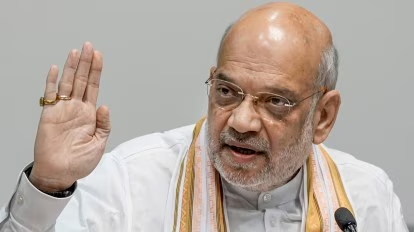On Friday, Union Home Minister Amit Shah announced that June 25 would be observed as ‘Samvidhaan Hatya Diwas’ (Constitution Murder Day) to commemorate the day the Emergency was imposed by former Prime Minister Indira Gandhi in 1975. In a post on X (formerly Twitter), Shah highlighted the significance of this day, emphasizing the immense contributions and sacrifices of those who endured the severe hardships during the Emergency period. This announcement underscores the continuing political and historical debate surrounding the Emergency, which remains a pivotal and controversial chapter in India’s post-independence history.

The Emergency, declared on June 25, 1975, lasted until March 21, 1977. It granted the then Prime Minister Indira Gandhi unprecedented powers, suspending constitutional rights and censoring the press. Political opponents were jailed, and civil liberties were curtailed, leading to widespread criticism and accusations of authoritarianism. For many, the Emergency period is synonymous with a dark phase in India’s democratic history, marked by human rights abuses and the suppression of dissent.
By designating June 25 as ‘Samvidhaan Hatya Diwas,’ Amit Shah and the current government aim to ensure that the memories and lessons of this period are not forgotten. Shah’s statement on X reflects a sentiment of honoring those who suffered and fought against the oppressive regime. He referred to the “inhuman pains” experienced by individuals who resisted the Emergency, including political leaders, activists, and ordinary citizens. These individuals, many of whom were imprisoned or otherwise persecuted, are celebrated for their resilience and commitment to democratic principles.
The observance of ‘Samvidhaan Hatya Diwas’ serves multiple purposes. It acts as a reminder of the fragility of democratic institutions and the need for vigilance in protecting constitutional rights. It also functions as a political statement, reinforcing the narrative of the current ruling party, which positions itself as a defender of democratic values against past authoritarianism. This commemoration is likely to provoke discussions and reflections on the state of democracy in India, both historically and in contemporary times.
Critics of the Emergency view it as an era of grave injustice, and the annual observance of June 25 as ‘Samvidhaan Hatya Diwas’ will likely serve as a focal point for discourse on civil liberties, governance, and the importance of safeguarding the constitution. By institutionalizing this day of remembrance, Amit Shah and the government aim to acknowledge the sacrifices of those who resisted the Emergency and to reinforce the commitment to democratic ideals in India.
On June 25, 1975, then Prime Minister Indira Gandhi imposed the Emergency in India, an act widely condemned for its authoritarian nature. In a recent tweet, Home Minister Amit Shah highlighted the impact of this decision, describing it as a time when “the soul of our democracy” was “strangled.” He stated that millions were unjustly imprisoned, and the media’s voice was suppressed. Shah announced that the Government of India will henceforth observe June 25th annually as ‘Samvidhaan Hatya Diwas’ (Constitution Killing Day) to commemorate this dark chapter in India’s history.
Prime Minister Narendra Modi supported Shah’s announcement by re-tweeting his post, emphasizing the significance of this observance. PM Modi remarked that recognizing June 25th as ‘Samvidhaan Hatya Diwas’ will remind citizens of the severe consequences when the Indian Constitution is undermined. He referred to the Emergency as a period when the Congress party unleashed one of the darkest phases in Indian history.
The decision to mark this day comes as part of the BJP-led National Democratic Alliance’s (NDA) broader offensive against the Congress, coinciding with the 49th anniversary of the Emergency’s imposition. The Emergency, which lasted from June 25, 1975, to March 21, 1977, was a 21-month period during which civil liberties were severely curtailed, political opponents were arrested in large numbers, and press freedom was heavily restricted. The period is often criticized for its oppressive measures and the significant impact it had on Indian democracy.
By observing ‘Samvidhaan Hatya Diwas’, the current government aims to ensure that the lessons from this period are not forgotten. It serves as a stark reminder of the importance of upholding democratic values and protecting constitutional rights. The commemoration seeks to educate future generations about the perils of authoritarianism and the value of maintaining democratic integrity. This initiative also underscores the BJP’s continued efforts to hold the Congress party accountable for its historical actions, using the Emergency as a symbol of the party’s past misdeeds.
The announcement has sparked discussions and debates across the political spectrum, with various opinions on the appropriateness and implications of such an observance. Nevertheless, ‘Samvidhaan Hatya Diwas’ is set to be a significant annual event, aimed at reflecting on a crucial period in India’s democratic journey and reinforcing the commitment to constitutional principles.

